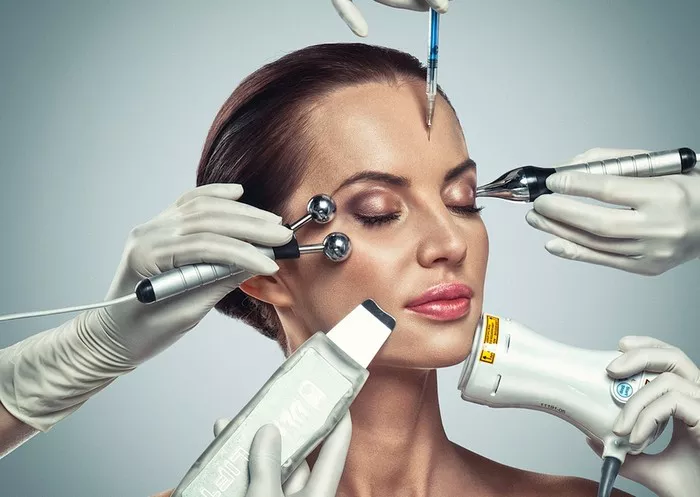In a disturbing trend echoing the “Kardashian Effect,” wealthy Egyptian men are increasingly pressuring their wives into undergoing plastic surgery to conform to their idealized standards of beauty. This practice highlights a troubling intersection of societal expectations, gender dynamics, and cosmetic surgery.
The “Kardashian Effect” and Its Impact
Since the 2007 debut of Keeping Up With the Kardashians, the physical appearances of the Kardashian sisters have influenced beauty standards worldwide. Known for their voluptuous figures and sculpted bodies, the Kardashians have inspired many to pursue cosmetic enhancements to achieve similar looks. Dr. Matthew Schulman, a New York City plastic surgeon, coined the term “Kardashian Effect” to describe this surge in demand for body modifications that mimic the reality TV stars.
In Egypt, this effect has manifested in a troubling way. Soha Abdel-Rahman, a woman in her 20s, found herself subjected to multiple surgeries by her wealthy husband. Despite being of healthy weight, her husband demanded enhancements to align with his personal aesthetic, which he associated with women in adult films. The pressure led to procedures such as a buttock lift and waist resizing, ultimately causing her physical and emotional distress.
The Pressure of Wealth and Beauty
Abdel-Rahman’s experience is not isolated. Amani Mahmoud, a school teacher, also faced extreme demands from her spouse, who criticized her physical appearance despite her efforts to meet his expectations through surgery. Mahmoud even sold her gold jewelry to afford a procedure to lighten her sensitive areas, only to face further criticism from her husband.
Plastic surgeon Seraj Mounir Zidane notes that many women seeking high-definition liposuction and other cosmetic procedures are often under duress from their husbands. Zidane advises against performing surgeries on women coerced by their partners, emphasizing the importance of making such decisions independently.
Cultural and Societal Influences
Intisar al-Saeed, a lawyer and founder of the Safe Medical Care Initiative for Women, highlights a broader societal issue. She argues that societal norms often grant men undue control over their wives’ bodies, with cosmetic surgery serving as a means to meet male-centric beauty ideals. This societal mindset promotes the notion that a woman’s value is tied to her appearance, perpetuating harmful practices and attitudes.
Lamia Lotfy, a researcher in women’s and gender issues, points out that while cosmetic surgery is predominantly seen among wealthier classes, pressures to conform to beauty standards also affect lower-income women, though they may be limited to non-surgical methods like weight loss.
The Role of Media and Pornography
Mental health and family relations consultant Asmaa Hefzy attributes some of these issues to unrealistic beauty standards perpetuated by media and pornography. She argues that cultural expectations and distorted perceptions of marriage and sexuality contribute to harmful behaviors, such as the demand for pre-marital cosmetic procedures.
Hefzy emphasizes the importance of mutual respect and honest communication in relationships. She believes that while it is crucial for couples to address each other’s needs, forcing a partner to undergo surgery crosses ethical boundaries and reflects deeper issues within the relationship.
The stories of Abdel-Rahman and Mahmoud underscore the urgent need for a shift in societal attitudes towards women’s bodies and beauty standards. As these cases demonstrate, the pressures exerted by wealth and societal norms can have severe physical and psychological consequences for women. Addressing these issues requires a broader cultural shift towards respecting individual autonomy and promoting healthy, realistic standards of beauty.
You Might Be Interested In:

